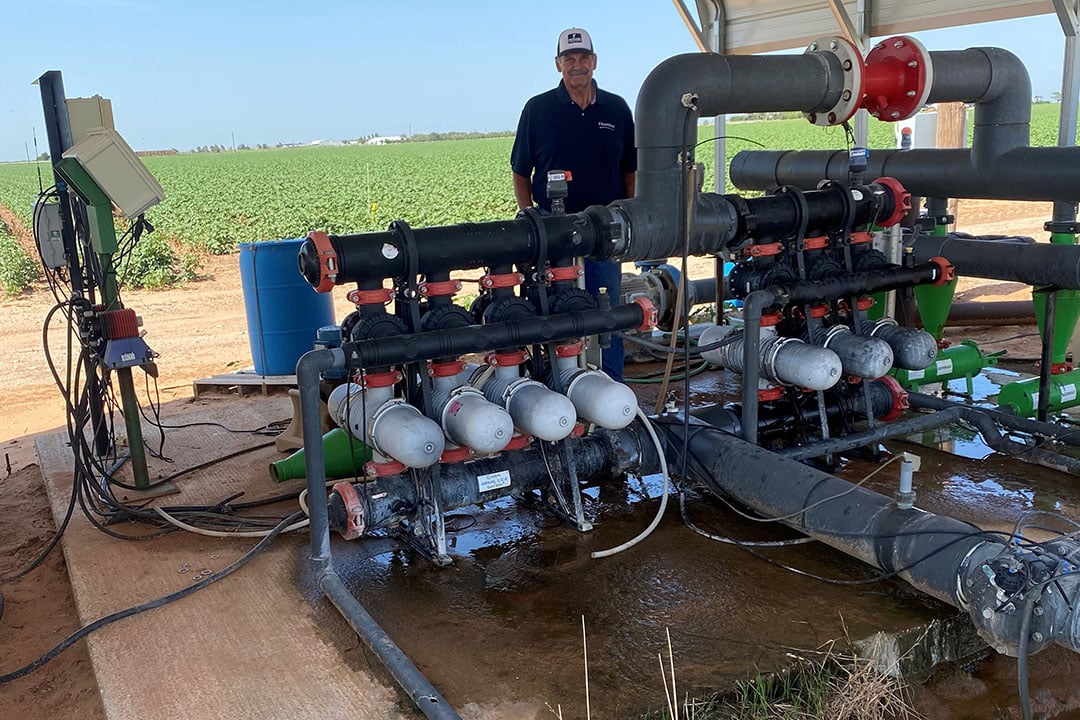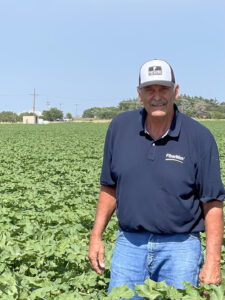Farmer Mike Patschke: “Amazing yield improvement with drip irrigation”

Mike Patschke has been using drip irrigation since 1997. According to him, no farmer should be afraid to invest in it.
Mike Patschke (65) is a farmer in Lubbock, Texas. Patschke grows cotton, wheat and corn. The family farm was established in 1920, both his father and great grandfather were farmers. Today, his son and nephew are also farmers.
Cotton is the main crop on the Patschke farm, with 3,200 acres. His mother, brother, nephew and son have another 5,000 acres that Mike helps manage.
Netafim drip irrigation
Mike has been using Netafim drip irrigation since 1997. Before, he applied row water irrigation with open ditches, followed by surge valve irrigation with pvc pipes. Then Mike switched to center pivots. None of these systems were efficient enough, says Mike. “The center pivot system used one third more water to get the same benefits as drip irrigation.”
Text continues underneath image

Also read: Precision irrigation fundamental for stabilising global food security
Mike started using drip irrigation on his own 130 acres farm. “Because the field was long and narrow, and a center pivot system wouldn’t work there. Since 1997, I install drip every year and at this point have a total of 1,700 acres of installed drip irrigation.”
For the initial installation Mike worked with a dealer. Since 2000 he has been working with current Netafim dealer Diversity D, an irrigation company near Lubbock, Texas, for installation of the drip irrigation systems and technical assistance. “The first system I installed cost me $ 600/acre. Currently, the cost is $ 1,200/acre for the drip irrigation product, the supplies, and the labour,” Mike explains.
A lot to learn

According to Mike, there were a lot of things he had to learn in order to properly apply drip irrigation. “Netafim supplied a representative, Amos Dror from Israel, who came and inspected the system. He gave me advice on when to irrigate, how to run the system, and when to fertilise,” Mike says.
Amos Dror kept visiting the Patschke farm every 10 days for 3 years during the growing season. “That was really helpful and gave me the chance to develop my knowledge of drip irrigation,” Mike says. Dror’s regular visits set him up for success in his first years of farming with drip irrigation.
After 2 to 3 years I had already made more cotton that would pay for the system
According to Mike Patschke, drip irrigation has led to a one third reduction in irrigation costs. He says main maintenance is rodent control. “Gophers chew holes in the drip tape underground.” Overall, Mike is very happy with his decision to switch to drip irrigation, and says growers should not be afraid of investing in it. “I was told it could take up 10 years to recoup the initial investment. But after 2 to 3 years I had already made more cotton that would pay for the system. The yield improvement with drip irrigation was really amazing.”
Also read: Drip irrigation definitely viable for large farms
Also read: Increasing profits by checking for drip irrigation issues
Join 17,000+ subscribers
Subscribe to our newsletter to stay updated about all the need-to-know content in the agricultural sector, two times a week.



